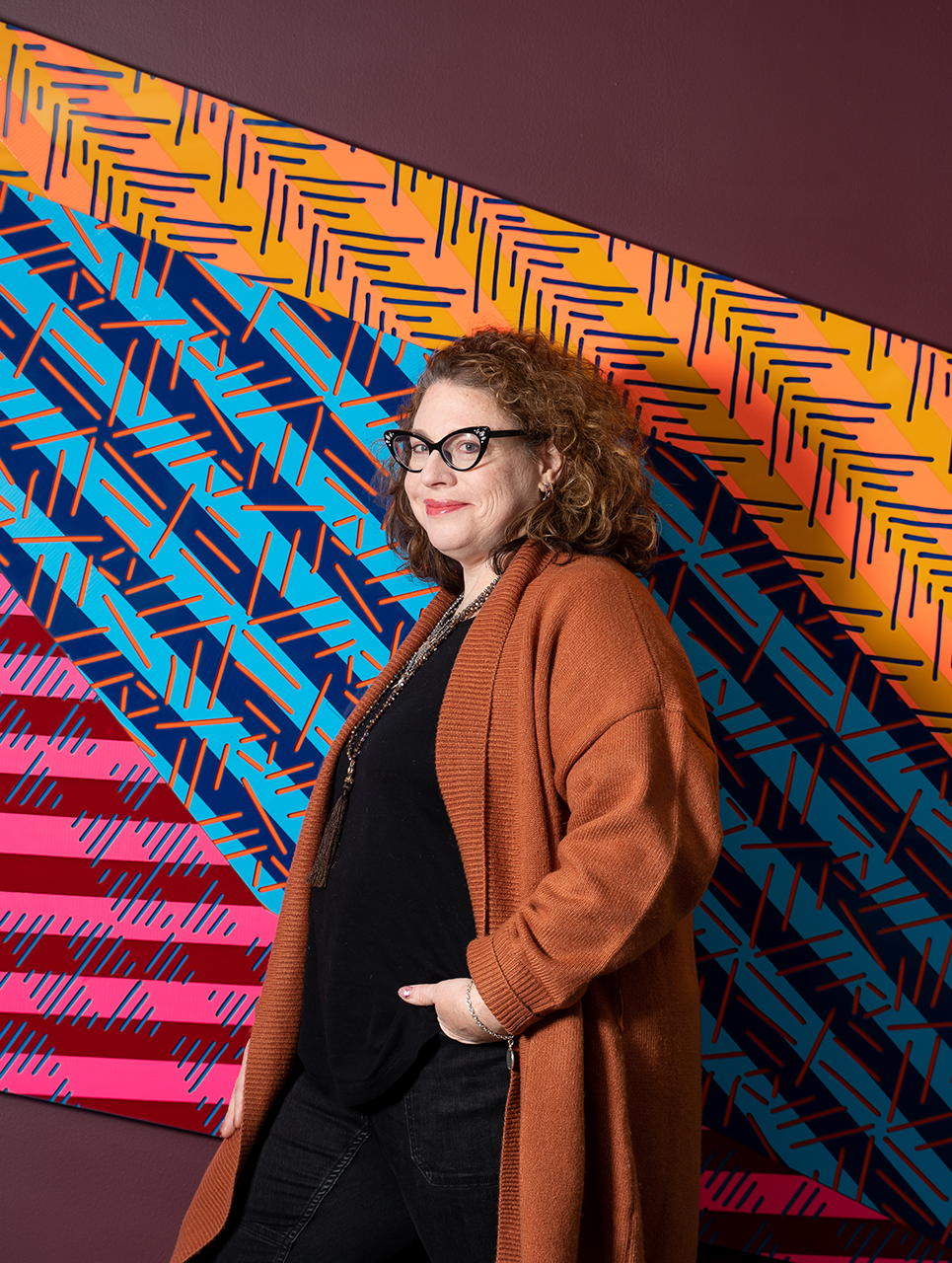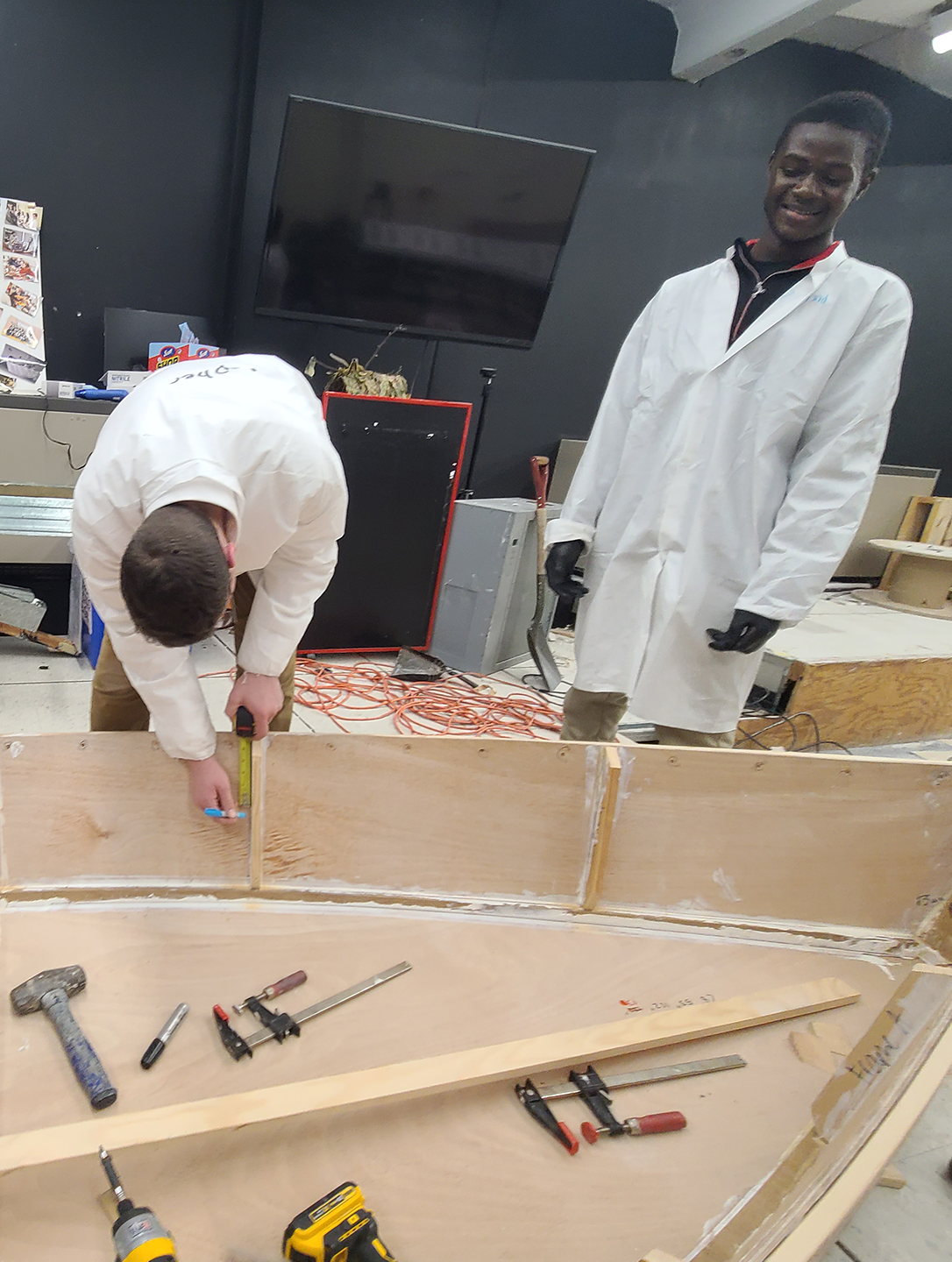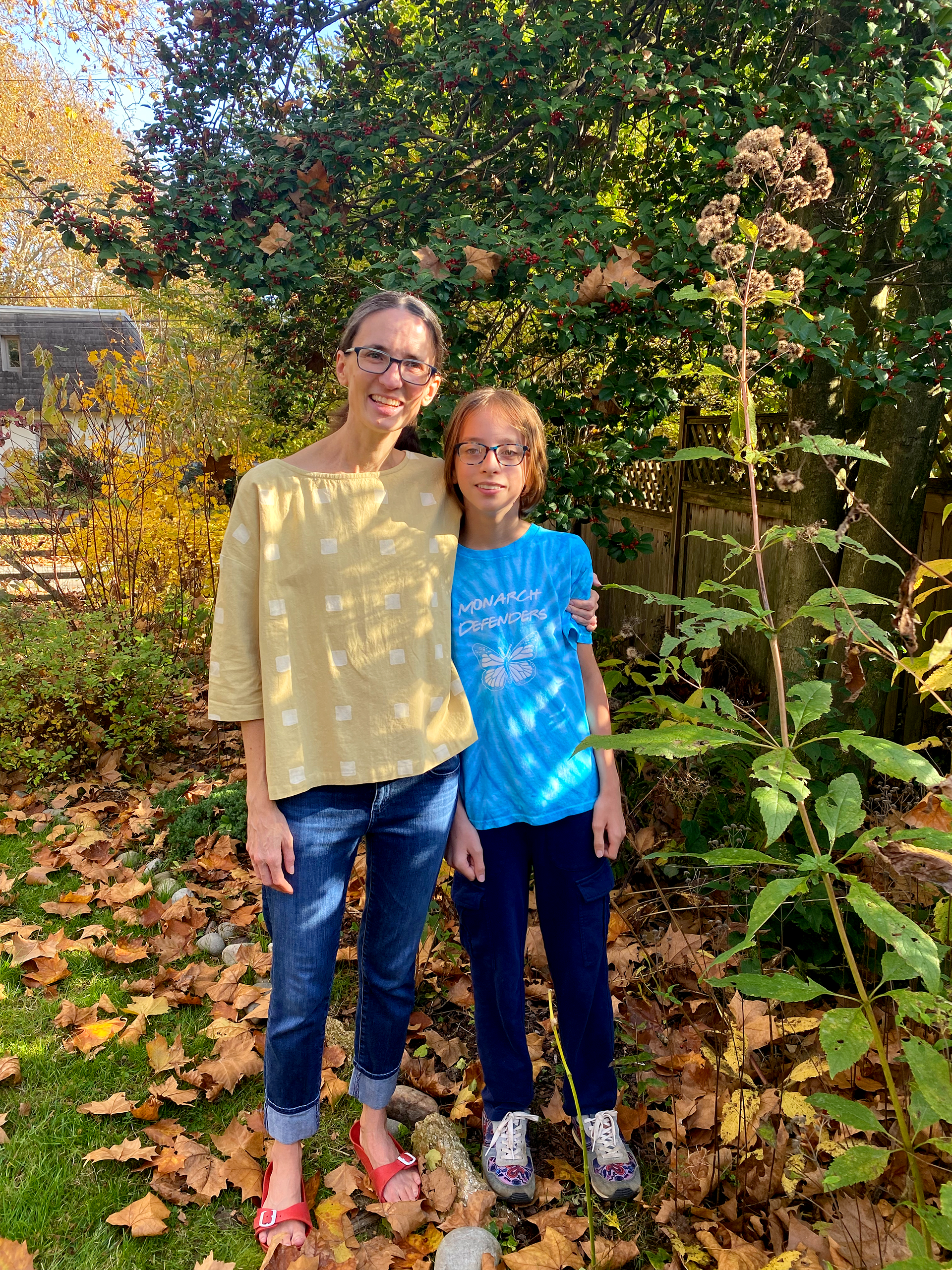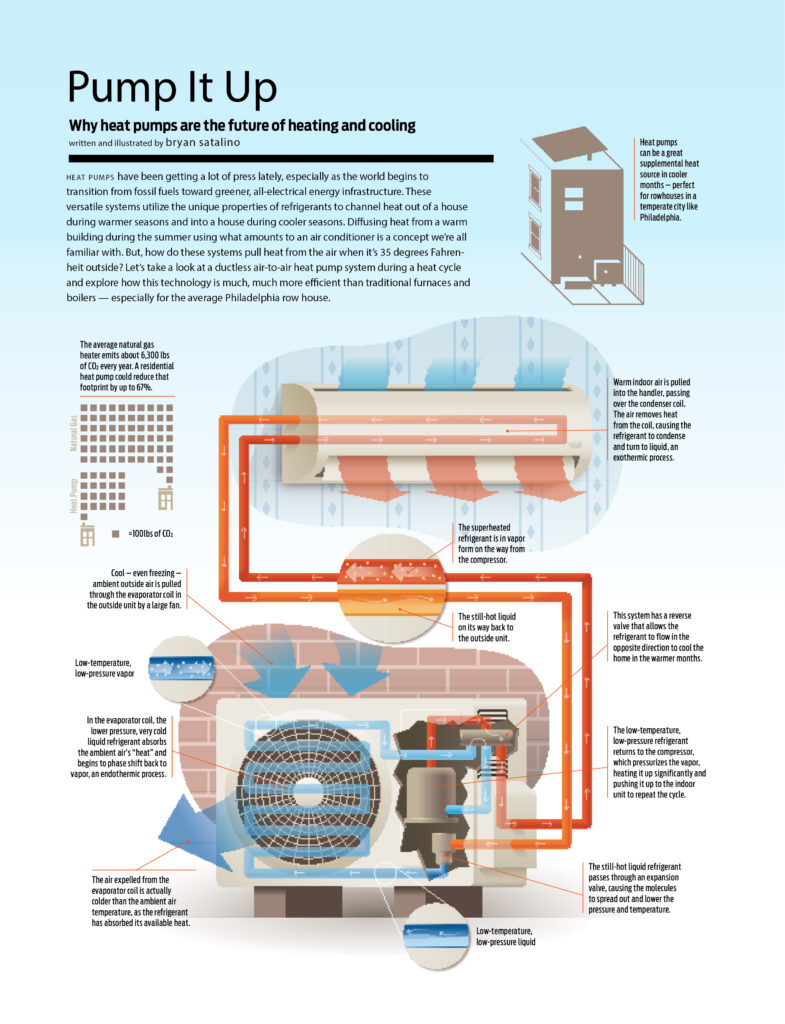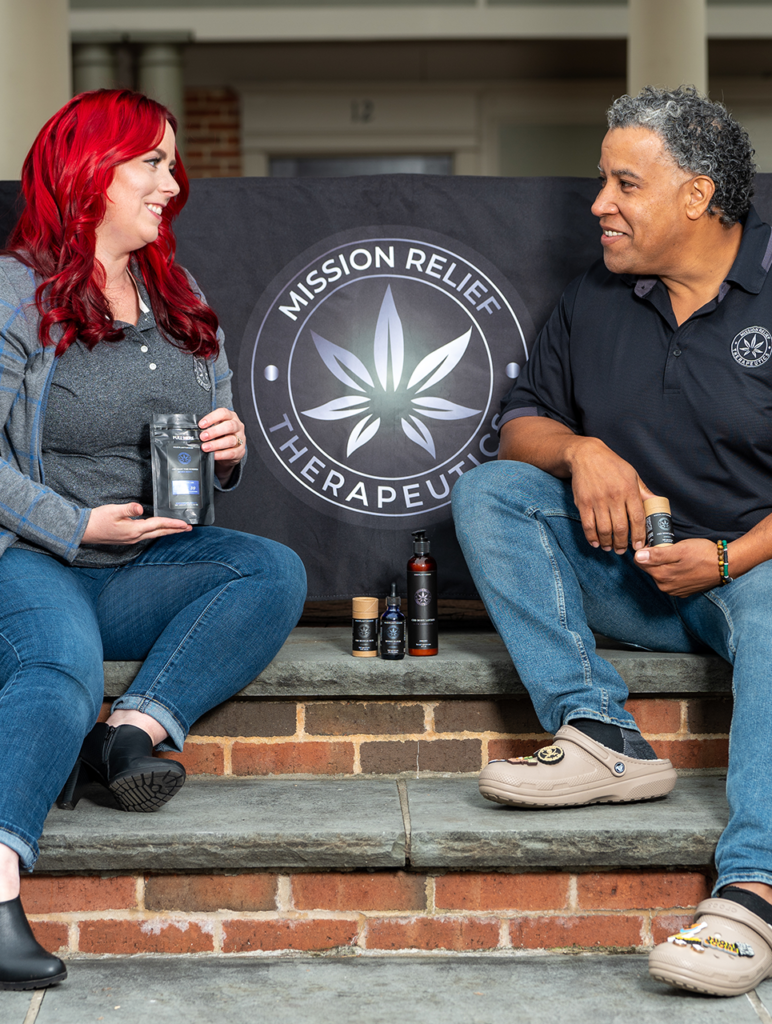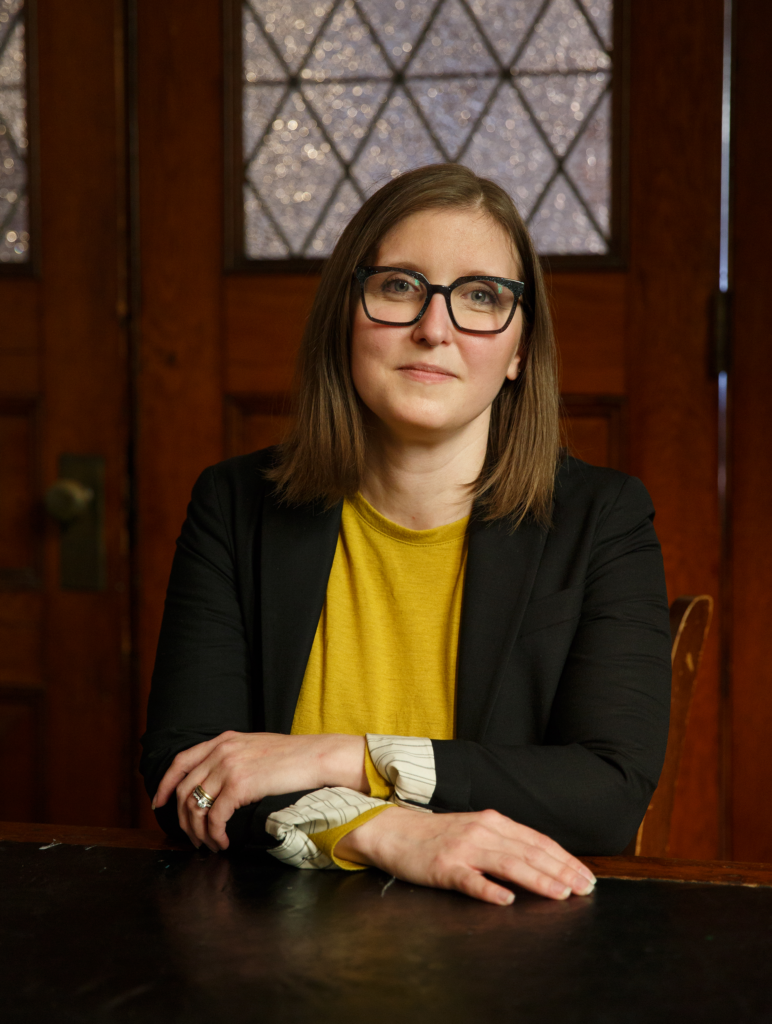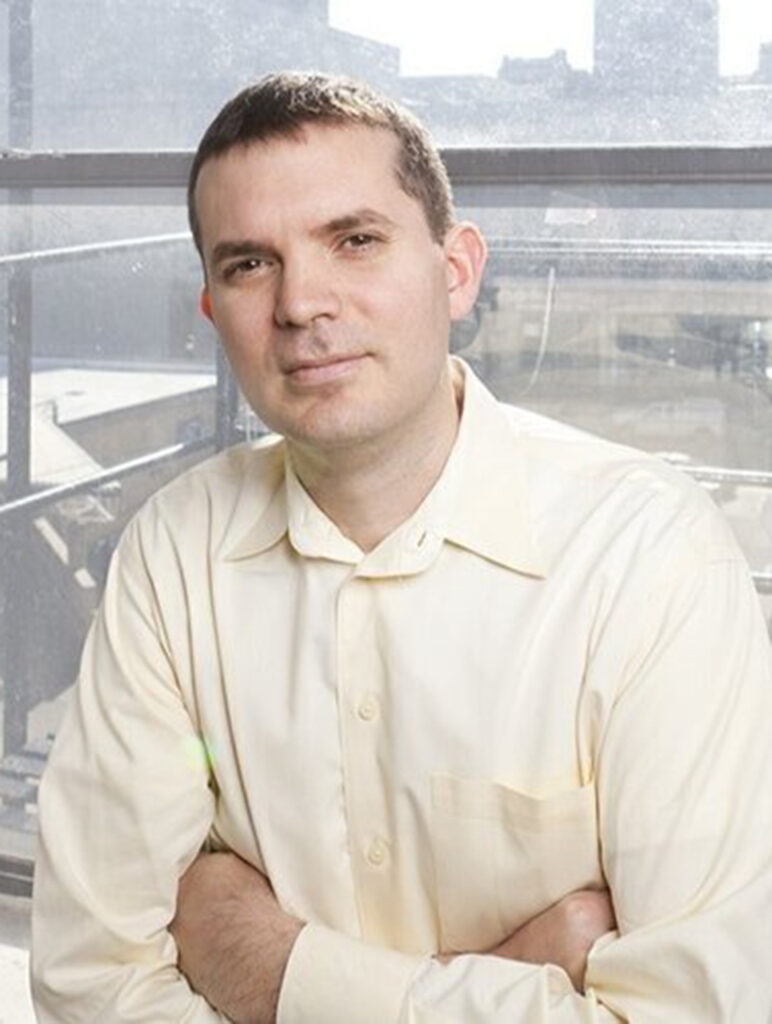After nine years working for a nonprofit organization, 41-year-old Erin Mattson was earning more seniority, more responsibility and more money than she ever thought possible. But she also experienced stress and anxiety levels that led to serious health problems. Her partner, Elissa Viscelli, 36, convinced her to quit her job because, far more than a second income, Viscelli said, “I need a happy wife.”
People are time poor and money poor and feel powerless at work.”
— Maura Shenker, former director of Temple’s Small Business Development Center
Post-COVID stories about the changing workplace abound. The Great Resignation. Quiet quitting. Worker shortages. The rise of “solopreneurs” and gig workers. Patricia Blumenauer, vice president for operations and data at Philadelphia Works, Inc. workforce development board, adds to these trends longer life expectancies, postponed retirement and generational shifts in attitudes about work. Blumenauer says, “COVID opened up the eyes of workers a bit more to what their options might be, what their capabilities might be and where they might have more power than before.”
Other forces have been reshaping the work world for years. Maura Shenker, in her recent role as director of Temple’s Small Business Development Center (SBDC), cites the deterioration of unions and a lack of job security. She feels that norms in the business community drifted away from a stakeholder focus to a shareholder focus with an emphasis only on profit maximization. As a consequence, she believes, “people are time poor and money poor and feel powerless at work.”
COVID opened up the eyes of workers a bit more to what their options might be.”
— Patricia Blumenauer, vice president for operations and data at Philadelphia Works, Inc.
We may be at a critical juncture when the balance of power between employers and employees is tilting. Blumenauer describes workers who are “looking for more and less.” More money, higher titles, more responsibility and prestige, but less time in the office in a rigid 9-to-5 sense, less structure in the work environment and even less supervision. It’s a tall order that addresses a small segment of the workforce where only predominantly white-collar jobs can be done flexibly.
In Philadelphia, employers and workers face daunting challenges around opportunity and access to living-wage jobs, especially when remote or hybrid work is not an option.
“Philadelphia: Executive Summary of Economic and Demographic Trends 2021,” a study released by Philadelphia Works, analyzed 2019 United States Census Bureau data to uncover sobering statistics about our workforce. Even if you’re aware that Philadelphia is the poorest large city in America, this report has the power to shock.
While our city of 1.5 million residents is home to 131,900 households with annual incomes of $100,000 or more, 237,900 households earn less than $35,000 annually. Within this group, 75,600 households have incomes less than $10,000. To put this number in context, it is equivalent to every family in Northern Liberties’ 19123 zip code, or Chestnut Hill’s 19118, or half of the residents in Center City’s 19103 neighborhood earning less than $10,000 a year.
The study found that 71,300 employed workers in Philadelphia live in poverty. And since 2019, 30,000 youth aged 16 to 24 are neither in school nor employed. That’s more than 100,000 residents sidelined from meaningful participation in the local economy.
How are we as a city and a people trying to improve the future of work as we enter what some have dubbed the “fourth Industrial Revolution”? Or, as one young professional, who preferred not to be identified due to concerns about negative feedback from their current employer, asks, “How can we build a world designed for the maximum enjoyment of life for the largest number of people for the longest time possible?” Some public and private sector programs are tackling the challenge in various ways.
The SBDC’s no-cost programs are designed to support the underserved community in North Philadelphia. SBDC saw a surge in “necessity solopreneurs,” individuals starting businesses to earn income after being laid off or unemployed during the pandemic. Many of these small businesses were in child care, cleaning services and other sectors with low startup costs.
Former SBDC director Shenker depicts the aspirations of these solopreneurs as financially modest. “It’s not about making as much money as possible—the race to a billion dollars is not what they’re looking for.” Their business goals are aimed at achieving a comfortable lifestyle, one free from struggling to provide their families with a safe home, food security and some financial cushion against emergencies. Shenker notes that these businesspeople have different metrics for success. They don’t judge success on business growth, but on earning enough and allowing for work-life balance.
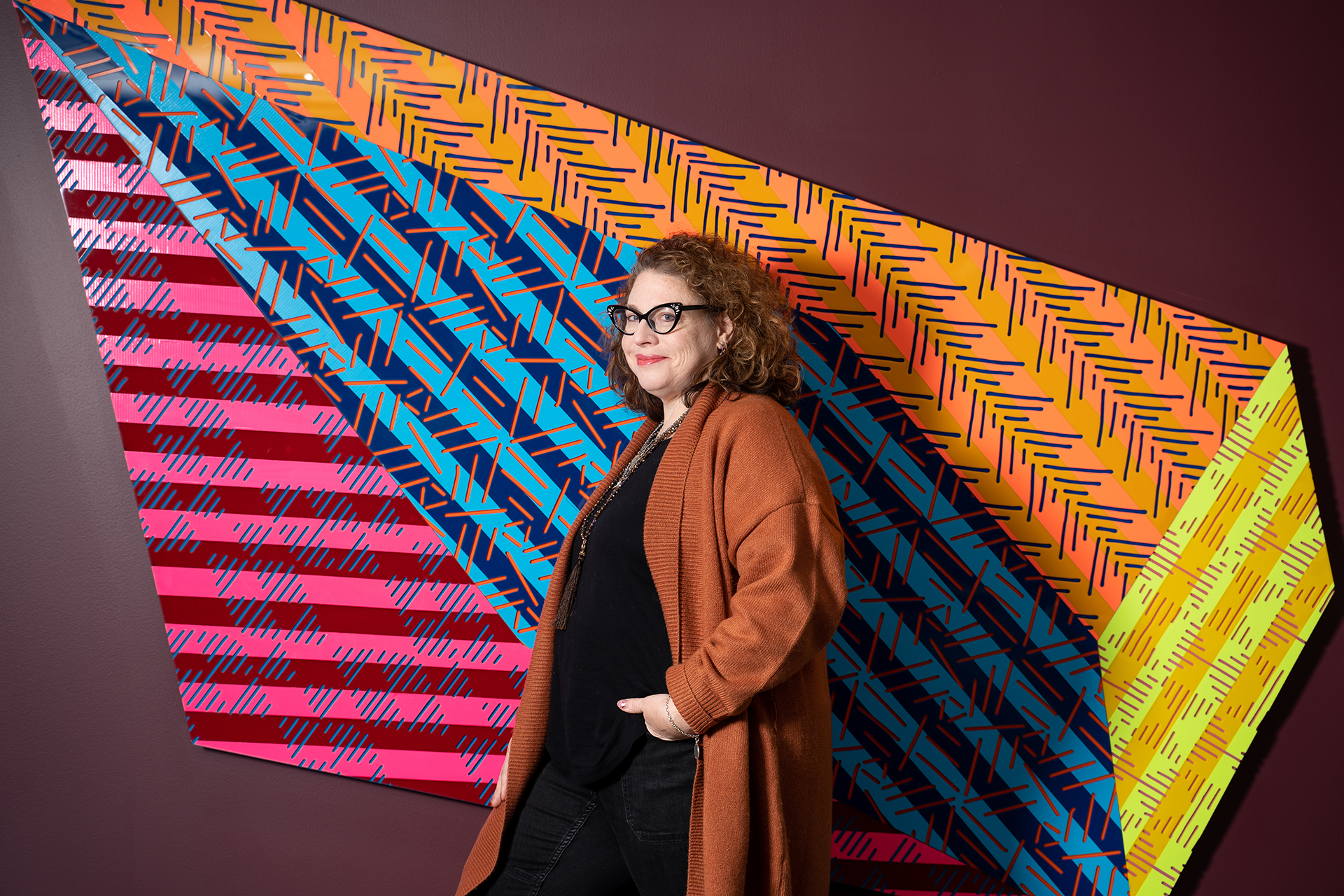
Philadelphia Works, Inc. is a 501(c)(3) nonprofit organization whose mission is to increase economic opportunity for all Philadelphians. In collaboration with business, government and other nonprofits, Philadelphia Works strives to identify and socialize workforce solutions. The organization has not been immune to COVID-19 stresses itself and has been reinventing the way it operates in response to post-pandemic needs.
Philadelphia Works’ Blumenauer described one shift in their focus as the “hyper-localization of interventions.” Instead of devoting resources to top jobs in education and healthcare, they are investing in filling positions that were not affected or only minimally disrupted by the pandemic, those paying at least $15 an hour with low barriers to entry for education and experience.
Waiting for employment seekers to come to the Philadelphia Works office is a thing of the past. The organization is doing far more outreach to neighborhoods with high employment needs while trying to improve the wraparound services necessary to remove some obstacles to employment. These may involve better vocational training, career coaching and helping with access to food and child care by beefing up coordination with partner service organizations.
Frances McNeal is the executive director for the Goldman Sachs 10,000 Small Businesses program at the Community College of Philadelphia. The Goldman Sachs program provides education to small business owners across the United States to help them strengthen and grow their enterprises.
McNeal says the opportunity landscape is changing as workers look for more autonomy and flexibility. She sees workers rethinking what they want and need and what they are willing to do to reach their goals, and the stress that puts on small businesses.
McNeal knows local businesses are struggling to find good employees in part because many of these low-paying jobs in health care, education and in-home services require in-person work without flexible scheduling. If employers can’t adapt their operations to accommodate worker expectations, it may force some businesses to close. Workers may end up choosing to hold two or three remote jobs rather than full-time employment with a single employer.
McNeal believes “America’s contract with its people is fundamentally flawed.” She asks the hard question we all need to address: “Who as a society do we recognize is valuable as a worker?” In her view, too small a slice of the population is considered “worthy of work,” leaving out the formerly incarcerated or those with low levels of education or professional experience.
Co-founders Opéola Bukola and Alex Hillman are trying to build our local economy with 10k Independents. Their initiative is based on the belief that the people, money and knowledge essential to creating 50,000 good jobs over the next decade already exist in Philadelphia. Their radical approach to economic recovery starts with “three core pillars of action”: assisting people to find new paths to a good career, enabling “independents” or small businesses to move from survival mode to thriving, and prioritizing hiring and growth that benefits neighborhoods and communities.
10k Independents provides events, informational guides and the “Career Control” digital ’zine (which can be downloaded upon request at their website), all aiming to coalesce the experience, energy and creativity of gig economy or “solopreneur” workers into a peer network of sharing and support. Hillman says that “the future of work is already here. It’s just unevenly distributed.” 10k Independents wants to enable more workers, not just executives and entrepreneurs, to have greater autonomy and flexibility.
Attitudes and values have become central to any discussion of the future of work. Shenker says the pandemic shone a spotlight on exploitation in the workplace — who was at risk, whether the risk was worth the cost, who had to go into work, and who worked comfortably from home. The pandemic revealed that “normal” was unacceptable. “People want to work,” she says. “They just don’t want to be exploited.”
Many workers think that “quiet quitting,” defined as doing precisely what the job requires, should be the expectation for employment rather than the 24/7 demands imposed by a constantly connected workplace. “Acting your wage” offers a saner approach to setting limits. Work-life balance comes down to the fact that we work for money. The amount we require depends on the strength or weakness of a social safety net. Most of us work to buy some security in our lives, not to pursue a passion or become mega rich.
Alex Torch, a recent college graduate, works a part-time job as they weigh their career prospects. They think a major shift needs to occur in our economy and that individuals have the power to effect change, as evidenced by stirrings of new unionizing efforts. “You’re a worker bee but you have a whole hive of other workers around you,” they say. Torch would like to see fair wages and respect for all work, enabling not just white-collar but blue-collar workers to earn a livable wage with time for family, friends and hobbies. Coupled with more affordable higher education, Torch believes, the result would be a much more diverse workforce.
Blumenauer acknowledges the possible widening opportunity gap that worker expectations may pose for employers. Creating or preserving diversity, equity and inclusion (DEI) in a hybrid work world is a major hurdle. Remote work isn’t possible for everyone. As businesses redefine their work practices, Blumenauer cautions, there is the potential to undo whatever gains employers may have made in their DEI initiatives.
Still there is some cause for optimism. Many businesses have shown their ability to be more flexible and innovative than they previously thought possible. Blumenauer predicts we will continue to see employment modes evolve. “The workday, the workplace and the work world aren’t going to look like they have. We’ve shown we know how to pivot.”
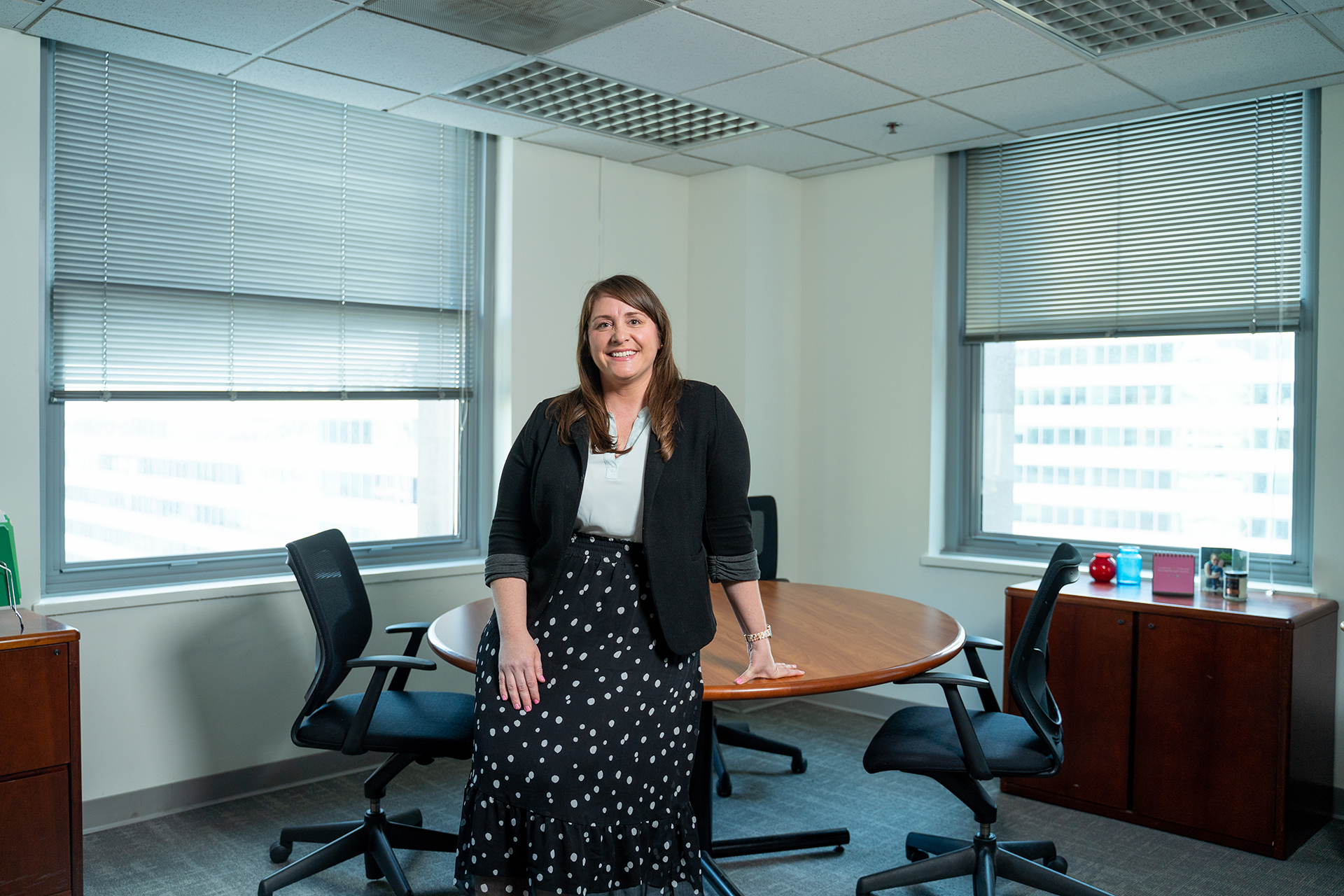
Nearly a year into her pivot, Erin Mattson is building a new career as a macramé artisan. At times that has meant working 80-hour weeks while facing the uncertainty of any fledgling enterprise. For someone who is risk averse, it’s a big step into the unknown. But Mattson knows she is among the privileged few who can afford to step off the career treadmill to create a fuller life for herself and her partner. Viscelli’s job provides steady income and health insurance, and the frugal couple have set aside savings to ease the transition. Mattson’s mother always advised her to find work she liked and was good at, but that would never dominate her life. “I don’t need to do something fabulous for work,” she says. For this couple, success is to be found in a healthy life and healthy relationships. That’s what Mattson is working for.

